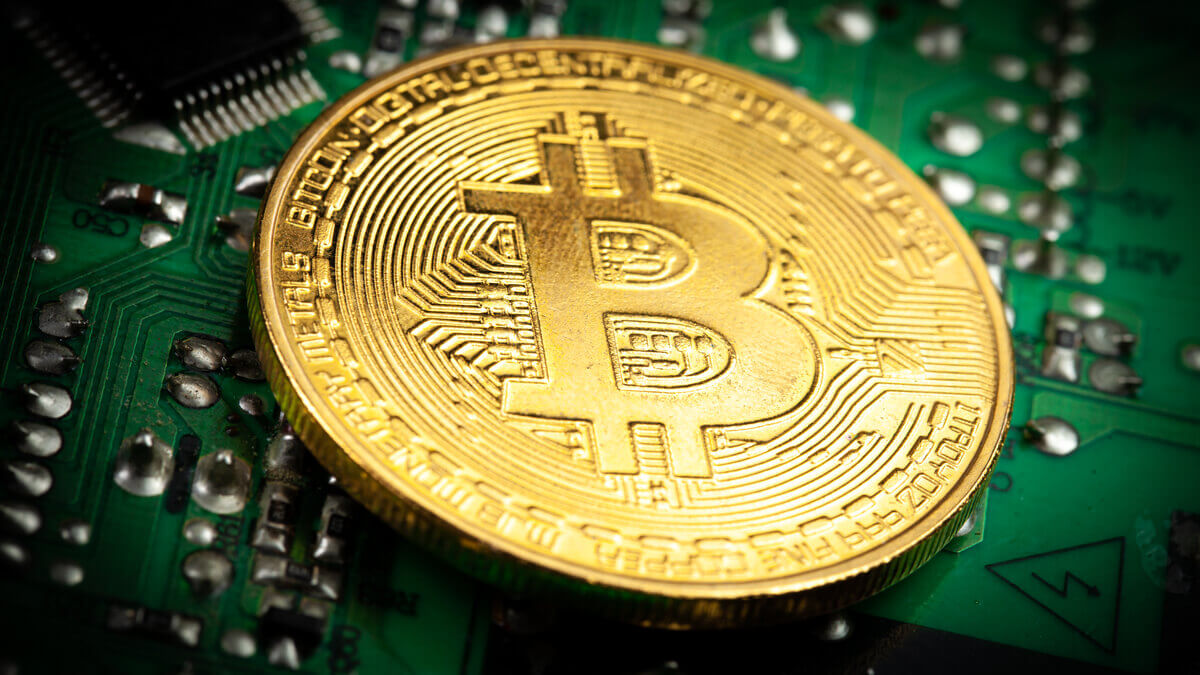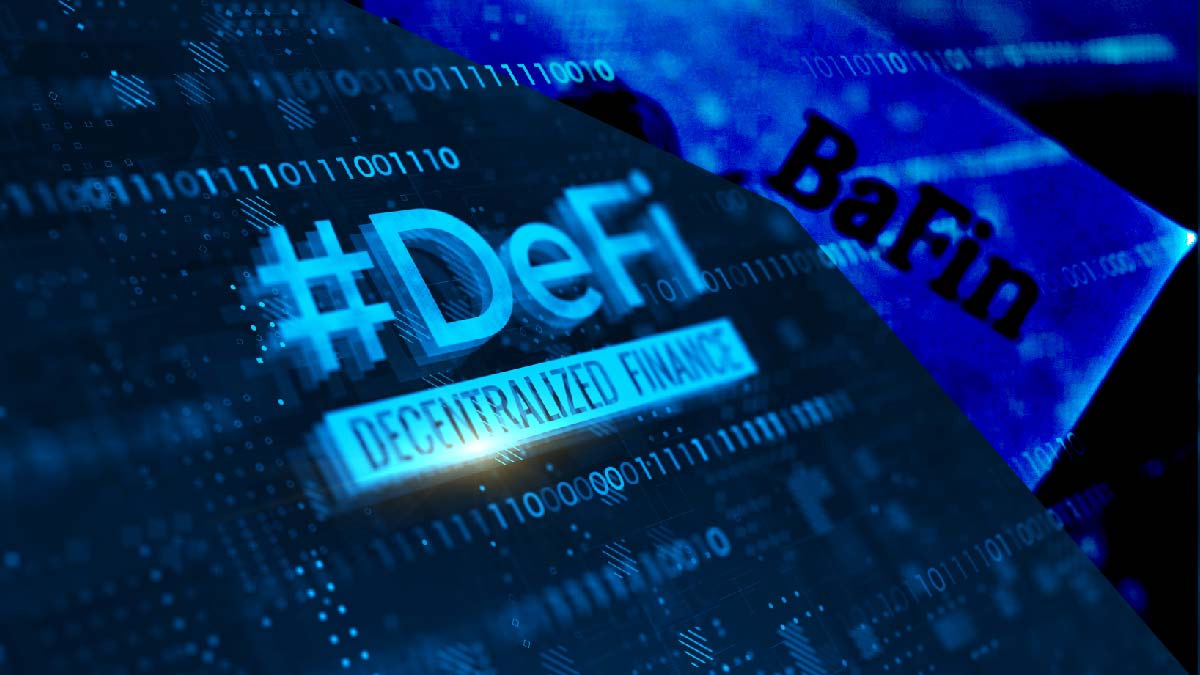Cryptocurrency
Bitcoin brings hopes, doubts for Salvadorans sending money

El Salvador is betting that this week’s pioneering adoption of Bitcoin will spur its economy, especially one of its most crucial sources of revenue: money sent home by Salvadorans in the United States.
A fervent proponent of the cryptocurrency, President Nayib Bukele has asked the more than 2 million Salvadorans who live overseas to send their remittances in Bitcoin, arguing it will be cheaper than transferring dollars. He also says it will stimulate foreign investment.
“It will be a great benefit for our people,” he has written in Twitter.
But both those at home and abroad are uncertain if the plan, which takes effect Tuesday, will work as intended. Some say the system is too complicated and opaque. Others worry about the way Bitcoin values can rise and fall sharply overnight — potentially giving recipients a windfall or a loss.
Looking on the bright side is William Justo, a 44-year-old Salvadoran who has lived in Chicago since 1986.
“Digital currency offers the opportunity of having access to something similar to a bank and making money when the currency goes up. Even farmers will have access to all of that,” said Justo, who sends remittances every week to two children, his wife and grandmother.
“It will be something very good for the economy,” said Justo, who says he may send bitcoins now instead of dollars.
Arnolfo Diaz, in Maryland, thinks differently.
“Old people and farmers, which are many of the Salvadorans who live here (in the United States), are not up with technological change,” said the 58-year-old. “It’s going to be confusing, complex for them”.
Bitcoin, an alternative to government-backed money, exists only in computer circuits and memory. It’s based on data-scrambling cryptography — thus the term “cryptocurrency” — lots of processing power and a distributed global ledger called a blockchain, which records all transactions.
No central bank or other institution has any say in its value, which is set entirely by people trading Bitcoin. That independence and secrecy have made it a favorite of people suspicious of governments, as well as criminals trying to hide their transactions.
Other countries have dabbled in cryptocurrencies, but none has gone so far as El Salvador.
Starting Tuesday, all businesses will have to accept payments in Bitcoin, except those lacking the technology to do so, according to a law approved by the congress, which is controlled by Bukele’s New Ideas party.
The U.S. dollar, however, will remain the country’s main currency and no one will be forced to pay in Bitcoin.
The government is using a digital wallet app called Chivo that can be used for payments and remittances in Bitcoin and Bukele has promised that Salvadoran citizens who download it and sign up will receive receive $30 worth of bitcoins in credit.
The legislature has allocated $150 million as a trust fund to get the system established.
Some 200 kiosks will be set up to let people make deposits — or withdraw their money in dollars.
“The use of the Chivo wallet won’t cost anything,” Bukele has said on his Twitter account
Bukele argues Bitcoin will facilitate remittances because people don’t need to deal with the formal financial system and won’t have to pay fees to send money home — though David Gerard, author of “Attack of the 50 Foot Blockchain,” said he doesn’t think that’s a big issue since El Salvador’s use of the dollar means there’s no need to convert currencies and fees are already low.
He also said the country doesn’t yet have an infrastructure — things like customer support — ready for the shift.
“I don’t know what will happen on Tuesday but it won’t be a working system that goes smoothly and does everything they advertised for it,” Gerard said. “Even if it was, it would really have to prove itself, show it can really work with no fees”.
Salvadorans appear skeptical as well. Face-to-face opinion surveys by three well-known local pollsters in recent weeks all found opposition to the plan, ranging from a slight majority to about two-thirds rejecting use of Bitcoin as legal currency.
In San Salvador, bank employee Marina Escalante, 39, said she will download the application but isn’t sure how much she’ll use it.
“I am going to download the application to get the $30 in Bitcoin, but I don’t know if I will continue using it,” she said.
Some immigrants are worried that they would have to enter personal information into the app. Others complain there’s a lack of information about the system.
Díaz, the Salvadoran in Maryland, still has many questions.
“Do I need to have cryptocurrency to send remittances or just download the application?” he asked.
The volatility of cryptocurrency also worries him. A full bitcoin was worth about $65,000 in April. Two months later, it fell to half that. It’s now up around $50,000. The government expects people to make millions of transactions in tiny fractions of each coin.
“Bitcoin goes up, goes down. Then how is that going to affect our people?” asked Diaz, who works at a union for construction workers and sometimes sends remittances to his mother-in-law, other relatives and friends.
Remittances are key to the Salvadoran economy: They represent about a quarter of the country’s gross domestic product and support nearly a fifth of El Salvador’s households, according to The United Nations Economic Commission for Latin America and the Caribbean. Much of that money goes to basic needs like food, health and housing.
In 2020, El Salvador received nearly $5.9 billion in remittances from abroad — the vast majority of it from the U.S., according to the Central Reserve Bank of El Salvador.
Bukele has said that Bitcoin will save Salvadorans $400 million annually in remittance fees.
Many experts, however, doubt the extent of those savings, saying companies now charge an average of $8 — about 2.6% — for every $300 sent through a well-functioning system that handles more than 1 million transactions a month.
Manuel Orozco, director of the Center for Migration and Economic Stabilization at Creative Associates International, noted that the government plan to run its own dollar-dispensing teller machines will have its own costs.
International agencies such as the World Bank so far have kept their distance.
“While the government did approach us for assistance on Bitcoin, this is not something the World Bank can support given the environmental and transparency shortcomings,” said a spokesperson who asked not to be identified according to the institution’s policies.
Bitcoin has also been criticized because of the huge amounts of energy it consumes as so-called “miners” use electricity to process the blockchain transactions in order to earn bitcoins themselves.
That doesn’t bother Justo, the Salvadoran in Chicago. He said he is not a supporter of Bukele, but thinks the Bitcoin law will be a success.
“It has the backing of the government so there is not much to worry about,” he said.
MIAMI (AP)
Blockchain - Cryptocurrency
Is Cryptocurrency Legal in India?

Whether making Cryptocurrency legal in India or not is still up for debate, but the Supreme Court asked the government to be very clear about its position. The national government is drafting a bill to control cryptocurrencies and other digital assets in India. In the Union Budget 2022, Finance Minister Nirmala Sitharaman announced that the federal government would impose a steep tax of 30% on virtual assets, such as cryptocurrencies and Nonfungible Tokens, or NFTs. Budget 2022 suggested creating a new section 115BBH to impose income tax on cryptocurrencies and other virtual assets in order to implement this crypto tax.
Is Cryptocurrency Legal in India?
According to finance minister Nirmala Sitharaman, taxing cryptocurrencies does not make them legal tender in the nation. The nation has the right to impose taxes on cryptocurrency transactions, and these taxes have hit the Indian crypto market hard. The finance minister stated that an official position on regulation wouldn’t be taken until the ongoing consultations were over.
The Directorate of Enforcement (ED) of the nation is making rapid progress with its investigation into any potential foreign exchange.
According to reports, the ED is looking into every aspect of the offshore transactions carried out by the Indian exchanges. The amount of domestic money that left India is being estimated by the Indian authorities, and is a big factor in whether to make Cryptocurrency legal in India or not. Transaction histories and the companies’ involvement with foreign exchanges are hidden from view for that reason.
When an assessee’s total income includes any income from the transfer of virtual digital assets, the proposed section 115BBH seeks to stipulate that the amount of income tax that is due is equal to the sum of the income tax that is due at the rate of 30% on such income and the amount of income tax that would have been due had the assessee’s total income been reduced by the sum of those incomes, according to the Budget 2022 Memorandum.
From Assessment Year 2023–2024, the recently proposed cryptocurrency tax will be in effect. In the upcoming fiscal year (2022–2023), all of your cryptocurrency-related income will be subject to a 30 percent tax rate. For FY 2021–2022, investors must pay taxes in accordance with the current tax regulations.
With this law, the Indian financial authorities have essentially clamped down on the newly emerged financial market due to fear of financial instability, especially given the recent crypto crash.
Prime Minister Narendra Modi stated in November that cryptocurrencies could “spoil our youth” after the central bank had repeatedly warned that cryptocurrencies could pose “serious concerns on macroeconomic and financial stability.”
This view on the dangers of cryptocurrencies comes, ironically enough, despite some pretty impressive statistics, and have been taken into consideration when discussing whether to make Cryptocurrency legal in India.
One of the largest and fastest-growing cryptocurrency markets worldwide is found in India. There are 15 domestic cryptocurrency exchanges in the nation.
According to industry data, there are between 15 and 20 million cryptocurrency owners in India, with estimated holdings worth $6 billion (€5.31 billion).
Despite this, the Indian cryptocurrency market remains under stringent scrutiny that appears to persist for the foreseeable future.
Inside Telecom provides you with an extensive list of content covering all aspects of the tech industry. Keep an eye on our Technology and Blockchain sections to stay informed and up-to-date with our daily articles.
Cryptocurrency
How Facebook’s Cryptocurrency Venture Fell to its Demise

Surely, we all remember that one time when Facebook tried to enter the cryptocurrency world to expand its influence into the decentralized universe of cryptocurrency and blockchain. But those familiar with Facebook’s cryptocurrency venture also know that the dream did not even come close to fruition. Why? Let’s just start by saying many factors led to its unfortunate doomed fate, which was put into question from the get-go, but the main one has to be the project’s failure to secure the satisfaction of federal regulators.
Facebook Crypto Coin
In its first uncovering of its ambitious venture, the initial Facebook cryptocurrency name was Libra, which later on was changed, and the crypto coin was dubbed the name Diem. A term that could mean “carpe diem,” referring to the urge to make the most of the present time and not considering the thought and consequences of the future.
Seems quite fitting, given the project lasted only during its present time, did not see the light of day, and never reached its future endeavors. This can mainly be attributed to the heavy federal discontent of federal regulators and global finance officials, leading to its imminent failure in such a short period of time.
Originally, Facebook’s cryptocurrency venture was announced as a stablecoin with a value pegged to real-world assets, similar to worldly fiat currencies. The Facebook Libra cryptocurrency was intended to be adopted as a basic global currency with sparse fees, playing the role of digital money on your phone, used to pay any purchase supported by cryptocurrency. The overtone of this factor means that if the project had seen the light of day, it would’ve had its own monetary power, placing it in direct competition with the fiat currencies, such as the U.S. dollar. An element that brimmed fear into financial officials, pushing federal regulators to impose some form of authority on the project and its success to prevent any impact on the financial system’s sustainability and the overall control imposed by global central banks over money.
The Duel for Existence
The cryptocurrency of Facebook has been fighting for its existence since day one. Bombarded with deep discontent from the regulatory gaze and central bankers driven by fears that it would endorse illegal endeavors such as money laundering and privacy infringement and present itself as potential competition for global currencies’ sovereignty.
Following the regulatory scrutiny, the Facebook coin Libra was exposed to an endless chain of various ownerships, ending with a wave of migration of many corporate partners and high-level executives. The project, which Facebook’s Chief Executive Officer (CEO) Mark Zuckerberg hoped would change the world’s financial ecosystem, was soon faced with Washington’s rejection, particularly that of the Chair of the Federal Reserve and the Treasury secretary.
From there, the Big Tech giant’s respectable prestige was smeared to the ground during Zuckerberg’s testimony on Capitol Hill as he was playing all his cards to protect the name of the project. Yet the controversies of Facebook breaching Its users’ data privacy, spreading misinformation, and failing to provide robust censorship on its platform affected the stability of the project. Not to mention the fact that some of the biggest financial companies backing the project forsook, such as Mastercard, Visa, and PayPal. Then, followed by the head of Meta’s Cryptocurrency efforts, David Marcus announcement to abandon his responsibilities on the project.
With that in mind, the chain broke, and an overflow of criticism broke unto the project, with U.S. President Joe Biden expressing that he was never really a fan of the social media giant’s CEO and highly ranked Republicans and Democrats voicing their agitation with the Diem project.
Summary
The rippling effect of executives leaving Facebook’s cryptocurrency venture and politicians directing their wrath on the venture’s parent company left the Facebook coin, Libra, in a state of limbo for a while, which eventually led to Its demise. While there were many factors that contributed to its failure, the one thing that accentuated Its doomed fate is that the idea was envisioned by Facebook. The one thing that would’ve contributed to its eminent success, turned out to be the only thing catalyzing Its calamity.
Inside Telecom provides you with an extensive list of content covering all aspects of the tech industry. Keep an eye on our Cybersecurity section to stay informed and up-to-date with our daily articles
Cryptocurrency
German Financial Authority BaFin Calls for Unified DeFi EU Regulation

Executive director of Germany’s Federal Financial Supervisory Authority (BaFin), Birgit Rodolphe, has appealed for novel and comprehensive regulation of the decentralized finance (DeFi) sector across the European Union and to create a consistent DeFi EU regulation.
BaFin is Germany’s financial regulator, in charge of overseeing banks, insurance companies, and other financial organizations, which includes everything related to cryptocurrencies. BaFin is responsible for issuing “crypto custody licenses,” which are essential for companies wishing to provide bitcoin services in Germany.
Rodolphe made a point of the risks presented by an uncontrolled DeFi area to consumers in an article on BaFin’s website, calling for a uniform regulatory framework throughout EU member countries.
“One thing is clear: the clock is ticking. The longer the DeFi market goes unregulated, the greater the risk for consumers, and all the greater is the danger that critical offers that have systemic relevance will establish themselves.” Rodolphe stated.
She listed “technical issues, hacks, and fraudulent activity” as threats to consumers, claiming that DeFi isn’t as “democratic and altruistic” as its proponents believe and that DeFi products and systems are “difficult for many to grasp.” She came to the conclusion that DeFi protocols cannot function outside of rules just because they employ new technologies and claim to be outside the reach of law and governance or believe themselves to be self-governing.
Rodolphe lamented that the deregulated and chaotic DeFi, crypto, and NFT spaces had left many missing their financial livelihood. This is especially true now amid the biggest crash in crypto history that saw otherwise safe financial decisions brought low, with livelihoods lost and DeFi projects abandoned.
It is true that those who lose in the wild west, that is, the crypto market have no one to turn to when things go wrong, when assets disappear, wallets are hacked, or deposits are lost.
She went on to say that lending, borrowing, insurance, and other goods outside of the traditional financial system are all subject to license and supervision in the states where they’re sold, and she urged authorities to establish standards that will give DeFi providers legal certainty.
Rodolphe cited BaFin’s “crypto custody business” license, which allows businesses to provide cryptocurrency services in Germany.
The license was which was launched in January 2020 as an “attractive” regulatory framework for crypto enterprises. Only four crypto service providers have been licensed so far, but numerous financial institutions have applied.
Rodolphe wrote that regulatory systems in different European countries should be the same and help form a unified DeFi EU regulation.
“Ideally, such requirements would of course be uniform throughout the EU in order to prevent a fragmented market and to leverage Europe’s entire innovation potential.” She emphasized.
Rodolphe drew the conclusion that new DeFi laws mustn’t be weaker than the existing standards for traditional financial goods, as this might make DeFi products more appealing to businesses from a regulatory standpoint.























